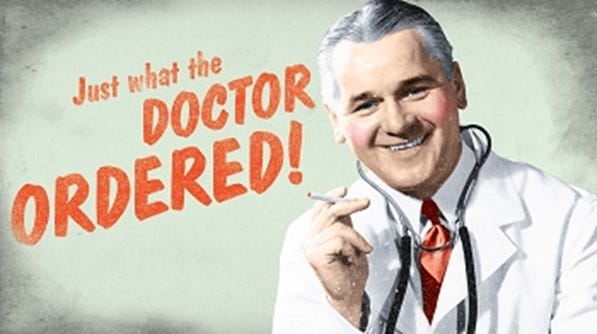24th December 2008 is a date I will never forget. Not because it has a happy Christmas spirit story behind it but because I almost died. But as usual, I would like to digress a little bit.so, shall we?
Meeting new people meant having a pint in a crowded, loud pub, which was a rather unpleasant experience when the only thing you can do is nodding uncontrollably and pretending to follow the conversion while everyone screams to the top of their lungs “Sex on fire” chorus by Kings of Leon. Could it be the reason why I’ve become a Shush Master? On top of that, my desperate attempt to be funny was a total and utter nightmare.
So, I had no other choice than to improve my English at any cost. And this meant a couple of evening classes (writing, pronunciation, debating, etc), listening to LBC (podcast wasn’t a thing back then), reading books, anything!
At the end of my journalism course, my classmates and I decided to head off to the heart of Shoreditch for our last goodbye party. As we were asked politely to leave the scruffiest pub in the area, we couldn’t stop hugging whilst promising to keep in touch. As everyone left, suddenly started to wheeze and feel my chest getting tighter and tighter.
I took the 242 to Homerton hospital and decided to go to the A&E as things worsened. The hospital was 300 metres, sorry 328 yards from the bus stop but it took me 30 minutes to reach my “final destination”; my bronchi got so tight that making a single step required more energy than doing a proper deadlift. For anyone who has the misfortune to have an asthma attack, they will understand that this is beyond unbearable.
“Next please” were the first words I could hear from afar. Shouted in a very greasy and sharp voice and the only thing I could think of was, to get a puff of Ventolin to be able to breathe. It was a matter of life or death!
“Can I have your name, address, address and why do you want to see a doctor?” At that very moment, I looked more like a cheap plastic inflatable mattress, and it was either breathing or talking.
The receptionist who couldn't be bothered to look at me repeated the same question. I was expecting the strident and wheezy sounds of my lungs would rest in my case but nothing, she was too preoccupied to fill her form with the details I was not able to provide, she then concluded “I am sorry but if you do not want to answer, we need move the next person. And again, she served another fatty “next please!”.
My survival instinct went to the roof. And the famous “fly or fight” response kicked in. I had two options, shouting “I can’t breathe please help” or pretending to faint, hoping someone would be human enough to help me! So, I chose the latter, which had a more powerful theatrical effect. And thank God it worked. I was sent immediately to an emergency room.
A couple of hours later and full of oxygen in my lungs, I bumped into the receptionist on my way out. Her name was Deborah a very hard-working nurse who grew up in Hackney. She apologised and explained that they have very strict protocols to follow as part of their job. I then admitted that the fainting was fake, we started laughing for a good 5 minutes. That was the first time, I made someone laugh so much. And ironically, she was the one unable to breathe.
15 years later I couldn't’ help wondering what would have happened if I decided not to act so dramatically. Was it just a dream or do we actually live in a society that has lost any touch of common sense, and sold it for already made protocols? If so, what is the hidden cost of this infinite quest for productivity, and most importantly, why makes us trade our duty to think, to do unacceptable things?
You might probably have heard of the Milgram experiment, which was conducted in the early 1960s. This purpose was to investigate the willingness of ordinary people to obey authority figures, even if it meant doing something that conflicted with their personal values and regardless of the consequences The research was documented in greater depth in his book, “Obedience to Authority: An Experimental View”.
Participants were asked to deliver increasingly severe electric shocks to another person (who was an actor and not receiving real shocks) whenever they answered a question incorrectly. The shocks were fake, but the participants didn't know that. Surprisingly, the experiment found that a very high proportion of subjects would fully obey the instructions, with every participant going up to 300 volts, and 65% going up to the full 450 volts. That is what I call learning the hard way.
We’ve all fallen into the authority trap and followed instructions just because they came from our manager or our manager’s boss even if we knew deep inside their ideas were rubbish.
But let’s give our managers a break, for a change because peer pressure has, without a doubt, more power on us than we would like to think. Who has not liked a social post or started to get an interest in the topic “du jour” just because it gets a lot of attention?
Be honest.
Another experiment conducted by the psychologist Solomon Asch delved into the impacts of group pressure and how it can shatter someone’s discernment. In these experiments, participants were shown lines of different lengths and asked to match a standard line with the lines of identical length among a set of options. Asch’s research highlighted the powerful impact of social conformity and the tendency for individuals to ignore reality, and in this case give an incorrect answer, to conform to the rest of the group.
Conformity can be the result of many things; the desire to be seen as a respectable person, the anxiety of not meeting our boss expectations, the fear of being ostracised by our colleagues. But those reasons spark discussion on someone's inability to take ownership for the consequences of their “decision”. After all, it isn't easier to just say “Oops, I just did what I was told!”, and if everyone else was jumping off the hill, it won’t really matter, will it?
With the rise of IA and the constant division of labour, which consists of separating work into several menial and repetitive tasks, all executed by a separate group of persons (or robots), employees are compartmentalised to do and not to think. Programmed to swallow information which most of the time is not fully understood, and repeated instinctively like the slogan of high-profile TV ad.
Is that it? Are we meant just follow the right step by step, nothing less, nothing more? As a result, if we become a subcategory of the division of labour, is it still possible for us to attach a meaning of what we do as we are completely detached from the end results?
Was George Bernard Shaw, the Irish playwriter right when he said that “Common sense is not a gift but a punishment”? If so, could it be that employers will not be looking for this quality when attracting talents? Are employees going to be forced to abdicate their rights to be critical to allow already made processes to be executed?
Let’s ask ChatGPT
According to World Economic Forum reports, analytical thinking, creative thinking and AI and big data will be top in-demand skills by 2027. Also, Leadership and social influence and curiosity and lifelong learning are among other skills expected to see growing demand.
Whether common sense will exist in the future is one thing. But who will protect for it?
Gary Zukav, the author of the best, “The seat of the soul” describes two categories of people. Those who focus on the technique and want to do the things right. Those who take great pleasure in ticking all boxes, fill all fields of a form, and wearing any compliance badges. In contrast with those who want to put their values and common sense first and do the right thing. So tell me which category do you want to belong to?
Discussion about this post
No posts










Très bien écrit, Nabil! Je te félicite!